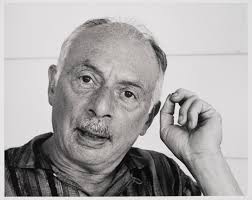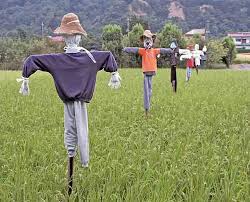
I visited the library and picked up a first-edition paperback of Seamus Heaney’s debut collection of poems, Death of a Naturalist, which included in its title (Kismet!) Henry David Thoreau’s favorite word.
It was an auspicious day. One in which I not only started, but finished this British paperback (Faber and Faber, sold for 1.25 pounds in 1966) of 57 pages in one sitting. That’s 34 Seamus Heaney poems with an old-school library card in the back showing it was signed out for the first time on June 15, 1977, and only three more times after that, the last being Dec. 22, 1995.
Gentle aside to poets: If you’re wondering why your poetry books aren’t selling better, you need look no further than this Irish giant’s first foray, which apparently got little play as well. Small comfort, that, I realize, but still….
Now some people are intimidated by the likes of men named Seamus Heaney. He did, after all, develop a style to be reckoned with over time. Have no fear here, however. Seamus’s first outing is mostly one-page poems (a particular favorite length of mine) filled with memories of farm life and boyhood back in the days of yore in Ireland. Sod. Cows. Cuds. Potatoes. Barns. Drowning kittens. Irish wakes. Young love. The usual and the un-, in other words.
Leading off, a familiar poem. The only one I knew from this collection, turns out. See if you know it, too:
Digging
by Seamus Heaney
Between my finger and my thumb
The squat pen rests; snug as a gun.
Under my window, a clean rasping sound
When the spade sinks into gravelly ground:
My father, digging. I look down
Till his straining rump among the flowerbeds
Bends low, comes up twenty years away
Stooping in rhythm through potato drills
Where he was digging.
The coarse boot nestled on the lug, the shaft
Against the inside knee was levered firmly.
He rooted out tall tops, buried the bright edge deep
To scatter new potatoes that we picked,
Loving their cool hardness in our hands.
By God, the old man could handle a spade.
Just like his old man.
My grandfather cut more turf in a day
Than any other man on Toner’s bog.
Once I carried him milk in a bottle
Corked sloppily with paper. He straightened up
To drink it, then fell to right away
Nicking and slicing neatly, heaving sods
Over his shoulder, going down and down
For the good turf. Digging.
The cold smell of potato mould, the squelch and slap
Of soggy peat, the curt cuts of an edge
Through living roots awaken in my head.
But I’ve no spade to follow men like them.
Between my finger and my thumb
The squat pen rests.
I’ll dig with it.
And dig he did, rooting out many a poem in his day. And it all started here. First. For him when it was published. For me, when I checked it out of the library 58 years later.








